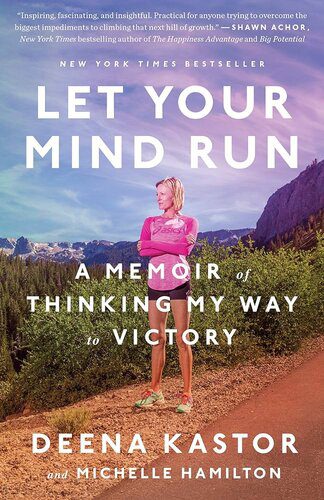In Let Your Mind Run: A Memoir of Thinking My Way to Victory, American long-distance runner Deena Kastor takes the reader on a life journey in running. How having a positive mindset, discipline, and excellent work ethic brought her success in her running career. She also shared the rollercoaster of winning and losing, motherhood’s challenges, and her quest to balance life and running.
“I loved running right from the start. It was simple and fun. It lacked rules and structure. There was no equipment to fuss with, no technique to learn.”
Best of all, running didn’t make me feel foolish or ridiculous, like I’d done something wrong. The ease of it made me feel competent and free. Everything we were asked to do, I could do. I ran and counted my laps. I warmed up on the trails, happily shooting out the gate with my teammates to the wild open space, and ran among the rabbits and deer.
I remember thinking how lucky we runners were to be in constant motion. We were part of the action all the time. Running was also, to my surprise and delight, both solitary and social.
